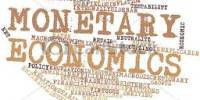Constitutional Economics is a branch of economics that focuses on the economic analysis of a state’s constitutional law. It is an economics and constitutionalism research program that has been described as explaining the choice of “alternative sets of legal-institutional-constitutional rules that constrain the choices and activities of economic and political agents.” This goes beyond the definition of “economic analysis of constitutional law” and is distinct from explaining economic and political agents’ choices within those rules, which is a topic of orthodox economics.
People frequently regard this field of study as distinct from more traditional forms of economics because it focuses specifically on how a state’s constitutional rules and economic policies benefit and restrict its citizens’ economic rights. Instead of limiting its analysis to economic relationships as functions of the dynamics of the distribution of marketable goods and services, constitutional economics considers the consequences of political-economic decisions.
Constitutional economics emerged in the 1980s as a field of economic study concerned with the construction and constraint of economic conditions within the framework of a state’s constitution. Because a constitution restricts what activities individuals and businesses can legally engage in, constitutional economics principles are used to estimate how a country or political system will grow economically.
James M. Buchanan’s work was a forerunner in constitutional economics. He contended that “The political economist who seeks normative advice must, by definition, focus on the process or structure through which political decisions are observed to be made. Existing constitutions, structures, and rules are being examined critically.”
Because constitutional economics studies how legal frameworks influence and impact economic development, the field is frequently applied to developing countries and countries undergoing political transitions. Standard economics is used to focus on the analysis of choices within rules, assuming that rules are given and fixed exogenously. Constitutional economics broadens this research program by analyzing rule selection using the established economic method, i.e. rational choice.
Constitutional economics has been defined as a practical approach to applying economic tools to constitutional issues. A major concern of every nation, for example, is the proper allocation of available national economic and financial resources. This problem’s legal solution falls under the purview of constitutional economics. Another example would be to investigate the “compatibility of effective economic decisions with the existing constitutional framework and the constraints or favorable conditions created by that framework.”
















